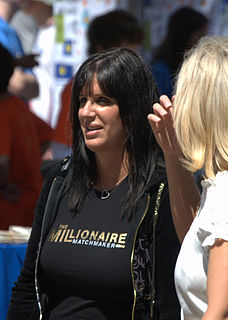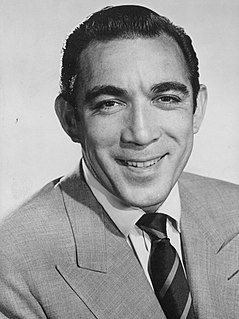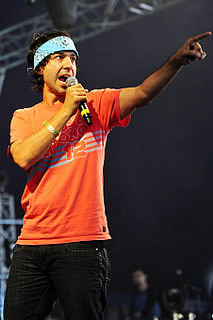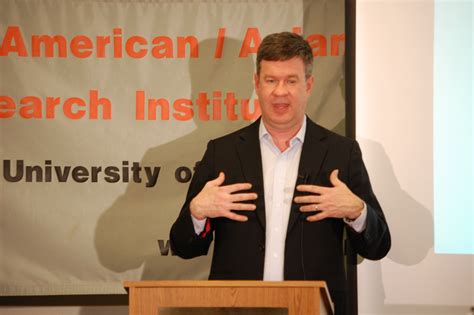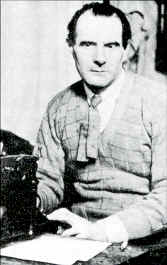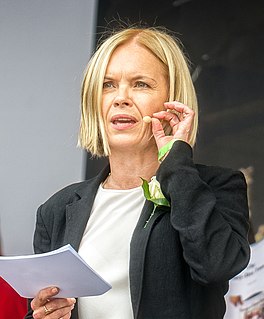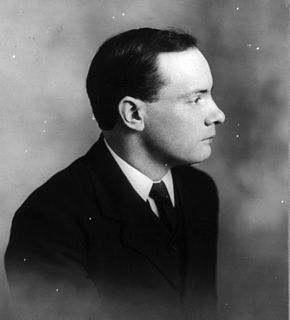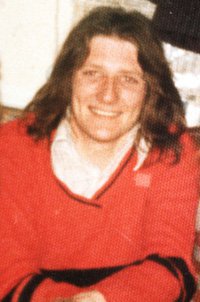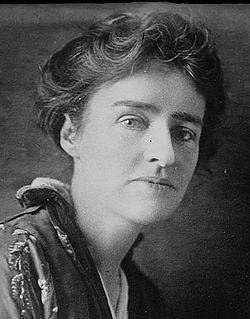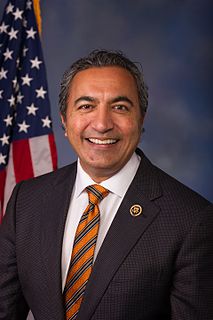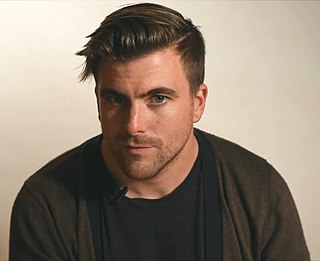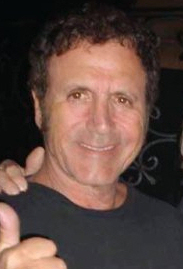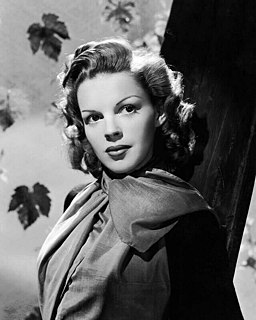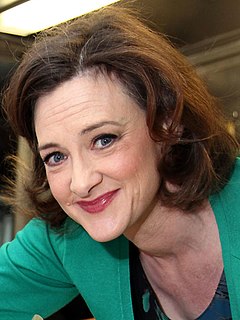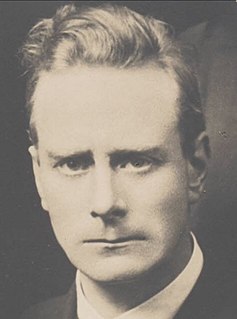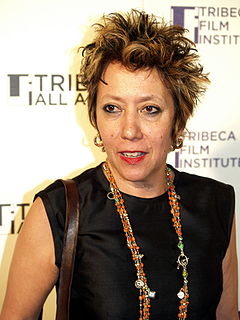Top 1200 Irish Quotes & Sayings - Page 20
Explore popular Irish quotes.
Last updated on November 5, 2024.
By love I don't mean indulgence. I do not mean sentimentality. And in this instance, I don't even mean romance. I mean that condition that allowed humans to dream of God.That condition that allowed the "dumb" to write spirituals and Russian songs and Irish lilts. That is love, and it's so much larger than anything I can conceive.
I know that many Irish-born New Yorkers are caught in the trap of our federal immigration policies. If we are going to continue to attract the best and the brightest - and Ireland has more than its fair share - we need to inject some common sense into our immigration laws, and I'm doing my best to make that case in Washington.
Being hapa, or more specifically, half-Japanese half-Euro mutt (English, Irish, Scottish, Dutch, French, Welsh, German. . .in case you were wondering), has definitely helped shape who I am. It's very cool to get to identify and learn about all these unique cultures and I think it's helped put the world in perspective.
I don't hate redheads! The millionaire men - wealthy men - never pick them. Every time I offer them they say no. I could say the most gorgeous redhead in the world and they'll say no, they don't want it. Now if you ask an Irish guy in Ireland, he says 'yes,' because that's indigenous to that country.
Yeats regarded his work as the close of an epoch, and the least of his later lyrics brings the sense of a great occasion. English critics have tried to claim him for their tradition, but, heard closely, his later music has that tremulous lyrical undertone which can be found in the Anglo-Irish eloquence of the eighteenth century.
London in the '70s was a pretty catastrophic dump, I can tell you. We had every kind of industrial trouble; we had severe energy problems; we were under constant terrorist attack from Irish terrorist groups who had started a bombing campaign in English cities; politics were fantastically polarized between left and right.
It might be marvelous to be a man - then I could stop worrying about what's fair to women and just cheerfully assume I was superior, and that they had all been born to iron my shirts. Better still, I could be an Irish man - then I would have all the privileges of being male without giving up the right to be wayward, temperamental and an appealing minority.
I was fascinated by the lack of a word for a parent who has lost a child. We have no word in English. I thought for sure there'd be a word in Irish but there is none. And then I looked in several other languages and could not find one, until I found the word Sh'khol in Hebrew. I'm still not sure why so many languages don't have a word for this sort of bereavement, this shadowing.
All I knew about Ireland before I went there was what I learned from watching soap commercials all my life. I was totally misinformed. I thought it was an Irish tradition where you don't even take a shower with your soap - you take your soap for a walk, you compliment the soap for a little while and then, suddenly, you just start hacking it up with a hunting knife.
I feel more Irish than English. I feel freer than British, more visceral, with a love of language. Shot through with fire in some way. That's why I resist being appropriated as the current repository of Shakespeare on the planet. That would mean I'm part of the English cultural elite, and I am utterly ill-fitted to be.
For dash and gallantry the bloodthirsty Scots, Australians and Canadians led the way, with the impetuous Irish close behind. The Australian to my mind were the most aggressive, and managed to keep their form in spite of their questionable discipline. Out of the line they were undoubtedly difficult to handle, but once in it they loved a fight. They were a curious mixture of toughness and sentimentality.
Caffeine gives me hope. Sometimes, when I brew my wicked strong Irish black tea just perfect, about halfway through the mug I feel a clear and overwhelming feeling of optimism. It didn't surprise me when a study a few years ago implied that suicide was much less likely among coffee and tea drinkers.
After all, in both languages we were dealing in large measure not with English and French, but with Scots and Irish, Bretons and Normans ... There could be no more eloquent illustration of the colonial mind-set than a bunch of Celts and Vikings in a distant northern territory insulting each other as les Anglais and the French as if they were the descendants of the people who had subjected and ruined them.
The rural Chinese in Henan Province mixed alcohol and business like you wouldn’t believe. Perhaps as a result, they also had a charming nationalistic blind spot: they honestly believed they could out-drink everyone else on the planet. As an Irish-American who outweighed them by 50 pounds, I had come to find this both amusing and useful.
One of my few childhood memories is as an eight-year-old, refused permission to watch the Hitchcock season on Irish television, sneakily viewing 'The Birds' though a crack in the living-room door. It transformed my hitherto perfectly enjoyable half-mile walk to school, down a country lane patrolled by watchful birds, into a terrifying ordeal.
And in spite of everything, Ireland remains the brain of the Kingdom. The English, judiciously practical and ponderous, furnish the over-stuffed stomach of humanity with a perfect gadget--the water closet. The Irish, condemned to express themselves in a language not their own, have stamped on it the mark of their own genius and compete for glory with the civilized nations. This is then called English literature.
London in the '70s was a pretty catastrophic dump, I can tell you. We had every kind of industrial trouble; we had severe energy problems; we were under constant terrorist attack from Irish terrorist groups who started a bombing campaign in English cities; politics were fantastically polarized between left and right.
One can't help thinking, Daddy, what a colourless life a man is forced to lead, when one reflects that chiffon and Venetian point and hand embroidery and Irish crochet are to him mere empty words. Whereas a woman- whether she is interested in babies or microbes or husbands or poetry or servants or parallelograms or gardens or Plato or bridge- is fundamentally and always interested in clothes.
I learned really early on that I had to treat it as if it were a real job. This might be my middle class background - the Irish work ethic, which isn't quite the same as the Protestant work ethic - but still, it's, 'Get a job and show up every day. Be there. And don't complain. Who do you think you are: you're nobody special; go to work.'
People everywhere brag and whimper about the woes of their early years, but nothing can compare with the Irish version: the poverty; the shiftless loquacious father; the pious defeated mother moaning by the fire; pompous priests; bullying school masters; the English and the terrible things they did to us for eight hundred long years. Above all -- we were wet.
The Irish landowner, partly from laziness but also from an indifferent delicacy, does not interfere in the lives of the people round. Sport and death are the two great socializing factors in Ireland, but these cannot operate the whole time: on the whole, the landowner leaves his tenants and work-people to make their own mistakes, while he makes his.
I had studied Irish history. I had read speeches from the dock. I had tried to fuse the vivid past of my nation with the lost spaces of my childhood. I had learned the battles, the ballads, the defeats. It never occurred to me that eventually the power and insistence of a national tradition would offer me only a new way of not belonging.
I don’t know who my parents were. I know nothing about my inheritance. I could be Jewish; I could be part Negro; I could be Irish; I could be Russian. I am spiritually a mix anyway, but I did have a solid childhood fortunately, because of some wonderful women who brought me up. I never had a father or a man in the house, and that was a loss...
There is a problem in America. An Irish or Polish American can write a story and it's an American story. When a Black American writes a story, it's called a Black story. I take exception to that. Every artist has articulated to his own experience. The problem is that some people do not see Blacks as Americans.
Sports biography at its best. Rich in period detail, anecdote, and fresh perspective, Strong Boy paints both the good and the bad sides of success, as America's growing celebrity culture turned a simple Irish American gladiator into a national, in fact international hero. A very human story with profound parallels for our sports-obsessed culture today!
I went to live in Barcelona in 1975, when I was twenty. Even before I went there, I knew more about the Spanish Civil War than I did about the Irish Civil War. I liked Barcelona, and then I grew to like a place in the Catalan Pyrenees called the Pillars, especially an area between the village of Flavors and the high mountains around it.
We are always giving foreign names to very native things. If there is a thing that reeks of the glorious tradition of the old English tavern, it is toasted cheese. But for some wild reason we call it Welsh rarebit. I believe that what we call Irish stew might more properly be called English stew, and that it is not particularly familiar in Ireland.
Tony Blair a couple years ago was going around apologizing for everything. He apologized for the Irish potato famine. The Canadian government apologized for how it treated Indian school children.When is the Democratic Party going to apologize for being the biggest slave-holding-supporting institution on the planet and sticking with racism for the century after the abolition of slavery?
Our nation is built upon a history of immigration, dating back to our first pioneers, the Pilgrims. For more than three centuries, we have welcomed generations of immigrants to our melting pot of hyphenated America: British-Americans; Italian-Americans; Irish-Americans; Jewish-Americans; Mexican-Americans; Chinese-Americans; Indian-Americans.
There's that great Irish joke: a man is lost in the countryside, stops a passer-by: 'how do I get to Dublin?'. The passer-by says 'well, I wouldn't start from here'. Rather than starting by talking in the abstract about materialism, dualism, 'material stuff' and things like that in regard to the mind, I would rather start from somewhere else.
My mother, father and brothers (I was the youngest of three boys), were all very sarcastic and we were a complete Irish-Catholic family. We didn't talk about our feelings ever, and if we did, we were yelling about them - there was no in-between. That's just carried over so many ways in my life and sabotaged relationships, sabotaged creative stuff.
Every publisher or agent I've ever met told me the same thing - that Irish readers don't want to read about the bad old days of the Troubles; neither do the English and Americans - they only want to read about the Ireland of The Quiet Man, when red-haired widows are riding bicycles and everyone else is on a horse.
One night I was standing on Third Avenue playing my guitar, when this big Irish policeman came strolling by, and stopped to listen to my singing and playing. When I was done, he politely handed me a ticket for disturbing the peace, while at the same time telling me how much he liked my voice. I wish I still had that ticket.
Though the Negroes are fed, clothed, and housed, and though the Irish peasant is starved, naked, and roofless, the bare name of freemen-the lordship over his own person, the power to choose and will-are blessings beyond food, raiment, or shelter; possessing which, the want of every comfort of life is yet more tolerable than their fullest enjoyment without them.
If the Irish once find out that there are any circumstances in which they can get free government grants, we shall have a system of mendicancy [begging] such as the world never knew”. After a million had starved to death he stated “The great evil with which we have to contend is not the physical evil of the famine, but the moral evil of the selfish, perverse and turbulent character of the people.
I'm part Spanish. My paternal grandfather came from Spain via Singapore to Manila. On my mother's side it's more mixture, with a Filipino mother and a father who was Scotch Irish-French; you know, white American hybrid. And I also have on my father's side a great-great-grandmother who was Chinese. So, I'm a hybrid.





